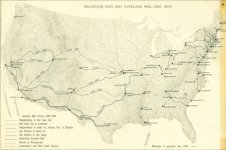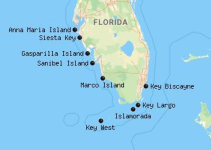- Location
- Albany, NY
- Pronouns
- She/Her
That is also true of the Southern states.An American Civil War a decade earlier would go better for the South because the North had fewer factories and railroads in 1851 than in 1861.
That is also true of the Southern states.An American Civil War a decade earlier would go better for the South because the North had fewer factories and railroads in 1851 than in 1861.
Yes, but the South had few factories and railroads even in 1861. The North's main advantage in the Civil War was its industry and transportation which they had far less of in 1851.That is also true of the Southern states.
Not to the extent your claim demands. The means to fight the industrial war did not magically spring up in the last decade before Fort Sumter.Yes, but the South had few factories and railroads even in 1861. The North's main advantage in the Civil War was its industry and transportation which they had far less of in 1851.
An American Civil War a decade earlier would go better for the South because the North had fewer factories and railroads in 1851 than in 1861.
That is also true of the Southern states.
Conversely, if the American Civil War was a decade later, it would have gone worse for the South because the North was more heavily industrialized in 1871 than in 1861. In 1861, the North was still not that heavily industrialized, there were a lot of small workshops. In 1871, there were far more factories and immigrants.Yes, but the South had few factories and railroads even in 1861. The North's main advantage in the Civil War was its industry and transportation which they had far less of in 1851.
I wasn't saying I thought the South would win, just that they would do better than in our timeline, with the Civil War lasting longer.Not to the extent your claim demands. The means to fight the industrial war did not magically spring up in the last decade before Fort Sumter.
As happened in the actual war the North will also benefit from foreign imports while the South is inevitably blockaded. The north may have to rely more on water transport as well. The "main advantage" was not, by far the only advantages the North had. The war will presumably look different but the idea that somehow the South gains on the North in such a scenario is baseless.
This is a nothing statement though as it ignores that a large part of the industrial growth of the 1860s was driven by the war. And in fact that's another point in the Norths favor in 1850. The crash industrialization of 1861-1864 could just as easily been created in the same time frame a decade earlier.Conversely, if the American Civil War was a decade later, it would have gone worse for the South because the North was more heavily industrialized in 1871 than in 1861. In 1861, the North was still not that heavily industrialized, there were a lot of small workshops. In 1871, there were far more factories and immigrants.
And I am saying there is no basis for that.I wasn't saying I thought the South would win, just that they would do better than in our timeline, with the Civil War lasting longer.

This is a nothing statement though as it ignores that a large part of the industrial growth of the 1860s was driven by the war. And in fact that's another point in the Norths favor in 1850. The crash industrialization of 1861-1864 could just as easily been created in the same time frame a decade earlier.
Thanks for the clarification.And I am saying there is no basis for that.
View attachment 64781
The critical logistical difference between 1850 and 1861 is that Western Armies for the Union would have to count on more inland sea supply movement via the Great Lakes and the Ohio River. Meanwhile the South simply has no meaningful rail losticis outside of one line from North Carolina to Virginia.
There is no reason at all to claim that the Norths comparative weakness and the Souths comparative weaknesses tilt at all in the favor of the rebellion.
The Delaware example may be instructive here, however- what led to the decline in enslaved persons as a percentage of the population was, in large part, a ban on intrastate sales that, along with the economics of the region, kept slave prices low relative to anywhere else in the South. Delaware banned exportation to Georgia, the Carolinas and the West Indies in 1787 and to Virginia, Maryland and others in 1789. (It was legal to export slaves to other states with a court order later in the era, but the decline had set in by that time).
I wonder if exodusting to 'southern' non-state territories is possible, like to Florida territory (pre-1845) or Arkansas territory (pre-1836).
It's also instructive in that Delaware did not avoid Black Codes- they had a number of restrictions meant to keep black laborers tied to the land prior to Reconstruction (including a vagrancy and forced labor component as early as 1849). There was also dubious legality to many of the state's own voluntary manumissions- enslaved persons were simply released, without the surety bond from former owner proscribed by law, and were vulnerable to reenslavement.

